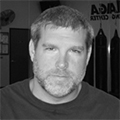Shifting gears this week…here is something on which to think.
A life well lived is a life filled with purpose and meaning.
Did you know that a single human cell contains more instructions than all the books in the Library of Congress? To put this into perspective, that’s over 39 million books stored on over 532 miles of book shelving. And, what’s even more mind bending – each human being has over 200 types of cells, numbering approximately 10 trillion in total. Ten trillion is a number that the human mind cannot really conceive of, so consider this – 10 trillion seconds is equal to 316,887 years (and change).
The message should be clear – you are a living, breathing miracle inside and out!
And, you are unlike any other living, breathing miracle. You are wholly unique, and with this knowledge you must know that you are also uniquely made. So, it stands to reason that a uniquely made, one-of-a-kind being would also logically have a unique purpose – and to be clear, you do!
So powerful is your unique purpose that there are things in this world that only you can and should do. You can be the bringer of light to dark corners of the world in ways others cannot. Your light you can generate is entirely unique.
Your unique purpose is the only thing in this world in which you are truly entitled – it’s your birthright and your one and only pure personal monopoly.
Thus, a life well lived is one brimming with meaning and the deep satisfaction that only living out your unique purpose can offer.
And, when I suggest to others that a life well lived is powerfully formed when a person discovers and lives out his or her own unique purpose, I never get an argument (just the opposite in fact).
Thus, the conversation immediately turns to the next logical question – Yes, but how?
Tertium quid – loosely translated, something else entirely – is my standard response to this question. This question itself is of singular importance to those seeking the answer, and I use this Latin term, exotic as that might seem, for those whose question appears to be honest and borne from a place of sincere intention.
To me, the idea of something else entirely reflects my overwhelming rejection of the status quo. Simply put, the world with all its wonder will not and cannot reveal the key to a life well spent. Often, the pursuit of worldly priorities yields anything but a life well spent. Much of the world values advancement, achievement, financial wealth, power and status.
But, those that achieve only these things ultimately find emptiness after a brief encounter with a chemical high produced by the brain, as victory over another obstacle can be declared. The effects are fleeting at best.
Please don’t misunderstand; achievement obviously is not in and of itself a problem. It’s what we are trying to gain from achievement that dictates whether it is meaningful (or not). At the same time, my point is simple – achievement can be a trap – especially for those seeking validation from achievement.
Sadly, those trapped, who are constantly chasing self worth or validation (and extrication from the painful scars of an often tumultuous past), double down in the hopes that the next, greater achievement will offer the desired relief. But, no matter how difficult the challenge becomes, higher achievement never delivers what the world has promised.
What’s even more insidious; this “doubling down” process plays out in the subconscious mind. Unwitting players in this no-win game don’t even realize they are trapped into repeatedly playing a losing hand – as this endless hamster wheel continues its revolutions.
Moreover, popular culture promotes the ideal of a life well spent, for example, by offering up commercials sponsored by global wealth management companies – featuring smiling, attractive, well-dressed, silver haired couples hopping and dodging the remnants of the waves terminating into the sandy beach beneath their feet. By sentimentalizing one of the most important questions one can grapple with in this life is a moral failure of epic proportions. The world has simply let us down. A life well spent cannot be measured with money or accolades.
Perhaps this story will solidify the point. Legend tells us that Alexander the Great, “wept for there were no more worlds to conquer.” Having conquered the known world, Alexander had run out of the possibility of achievement. Without the prospect of “more worlds to conquer,” Alexander was left with the unfilled holes in his soul that he discovered could never be mended by conquest (i.e. achievement). In this, he must have experienced the ultimate sense of panic followed by a mournful surrender to the very real possibility of an empty and meaningless future. In short, he had no idea how to live life well. He knew it, and, so he wept.
So, how do you find your unique purpose? Rejection of the worldly illusion of a life well lived is a powerful first step. And, sometimes, knowing what not to do is as useful as knowing what to do. In this context, a rejection of worldly priorities is a potent and promising jumping off point. But there’s more.
Like anything worth doing, the process of discovering your purpose, for which you are uniquely qualified to uncover, takes effort. And like an author collecting information for his masterpiece, you too must develop a means to capture and collect the relevant bumper stickers and road signs of life that inspire your journey to your purpose. And as you piece the puzzle together, learn to filter information by filling three “life” buckets full of information about yourself and the world around you: (1) Passion, (2) Potential, and (3) Principles.
- Passion is the common denominator in those activities and things that refuel and renew – those things energize and lift your mind, body and spirit. Look for the common denominator, and avoid confusing obsession with passion. Remembering your childhood is a great place to start.
- Potential is the optimal leveraging of your physical, mental, emotional, intuitive, and spiritual domains. Often, we allow several domains to lie dormant while we over-leverage others that feel more natural and offer instant success. But, it is these underutilized, atrophying domains that will complete the circle of potential. Work your domains like muscles to bring them into peak condition.
- Principles refer to your personal ethos – your nonnegotiable, moral code. And, if you have never considered this concept, now is the time. Develop a blueprint for living, and a moral compass for making decisions – regret will fall away and integrity and courage will blossom. Consider prompts such as faith, hope, and love when developing a personal ethos. Who are you, and what will you stand for no matter what?
Finding your unique purpose is one-part serendipity and is nine-parts focused intention and authentic, hard work. And, (not to bury the lead) you will discover your unique purpose at the intersection of your passion, potential and principles. Here you will thrive.
The time for restoration and renewal is upon you. Go, and bring light to corners of the world that only you can illuminate.





Scott Mather
You mention Faith, Hope and Love. The apostle Paul’s words from the end of first Corinthians chapter 13. You also illustrate what a miracle our existence is. Your words of advice seem to me extremely wise and born of experience. Are you a believer, sir?